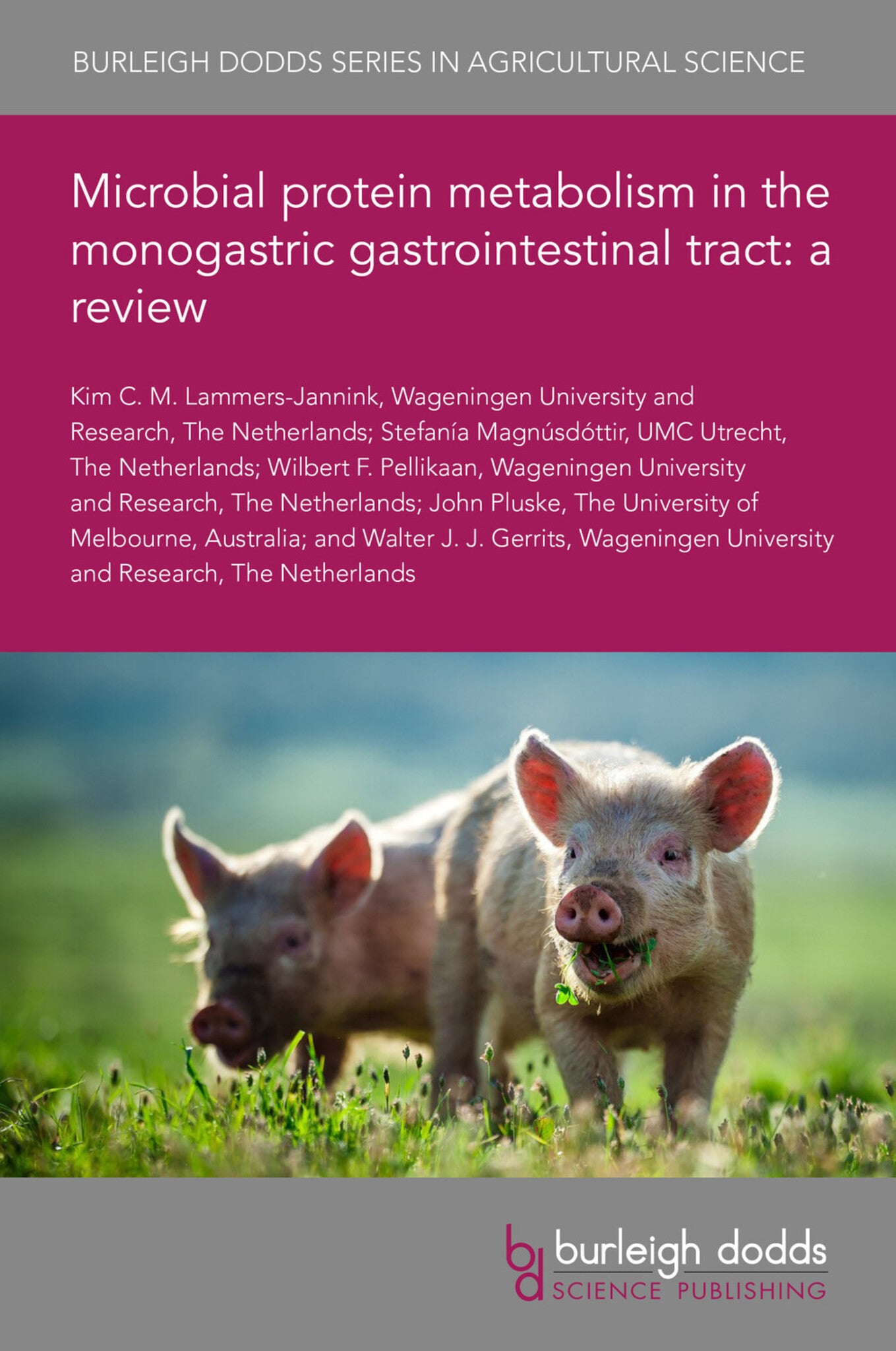We're sorry. An error has occurred
Please cancel or retry.
Microbial protein metabolism in the monogastric gastrointestinal tract: a review
Dr kim c. m. lammers-jannink,
Dr stefanía magnúsdóttir,
Dr wilbert f. pellikaan,
John r. pluske,
Dr walter j. j. gerrits
Regular price
£25.00
Sale price
£25.00
Regular price
£25.00
Unit price
/
per
Sale
Sold out
Re-stocking soon
Dietary and endogenous protein that become available for the microbiota in the hindgut can be metabolized via different routes. They can become building blocks for the microbial cells or enter diff...
Read More

Some error occured while loading the Quick View. Please close the Quick View and try reloading the page.
Couldn't load pickup availability
- Format:
-
10 January 2022

Dietary and endogenous protein that become available for the microbiota in the hindgut can be metabolized via different routes. They can become building blocks for the microbial cells or enter different catabolic pathways. Protein degradation via fermentation pathways is seen as a non-preferred route as it results in the formation and release of metabolites that can interfere with biological systems in the host and can have deleterious outcomes. Reducing protein fermentation and guiding the metabolism towards less toxic end-products might be possible targets for improving host health. To do so, more knowledge on factors manipulating the process of microbial protein metabolism, including on substrate availability, microbial composition and segmental differences in the hindgut, is required.

Price: £25.00
Publisher: Burleigh Dodds Science Publishing
Imprint: Burleigh Dodds Science Publishing
Series: Burleigh Dodds Series in Agricultural Science
Publication Date:
10 January 2022
ISBN: 9781801463720
Format: eBook
BISACs:
TECHNOLOGY & ENGINEERING / Agriculture / Animal Husbandry, Animal husbandry, TECHNOLOGY & ENGINEERING / Agriculture / Sustainable Agriculture, Sustainable agriculture, Agricultural science

1 Introduction 2 Microbial metabolism of protein 3 Major end-products of microbial metabolism of amino acids 4 Bacterial protein metabolism as a target for improving host health 5 Factors affecting protein metabolism in the hindgut 6 Conclusion and future trends 7 Where to look for further information 8 References



